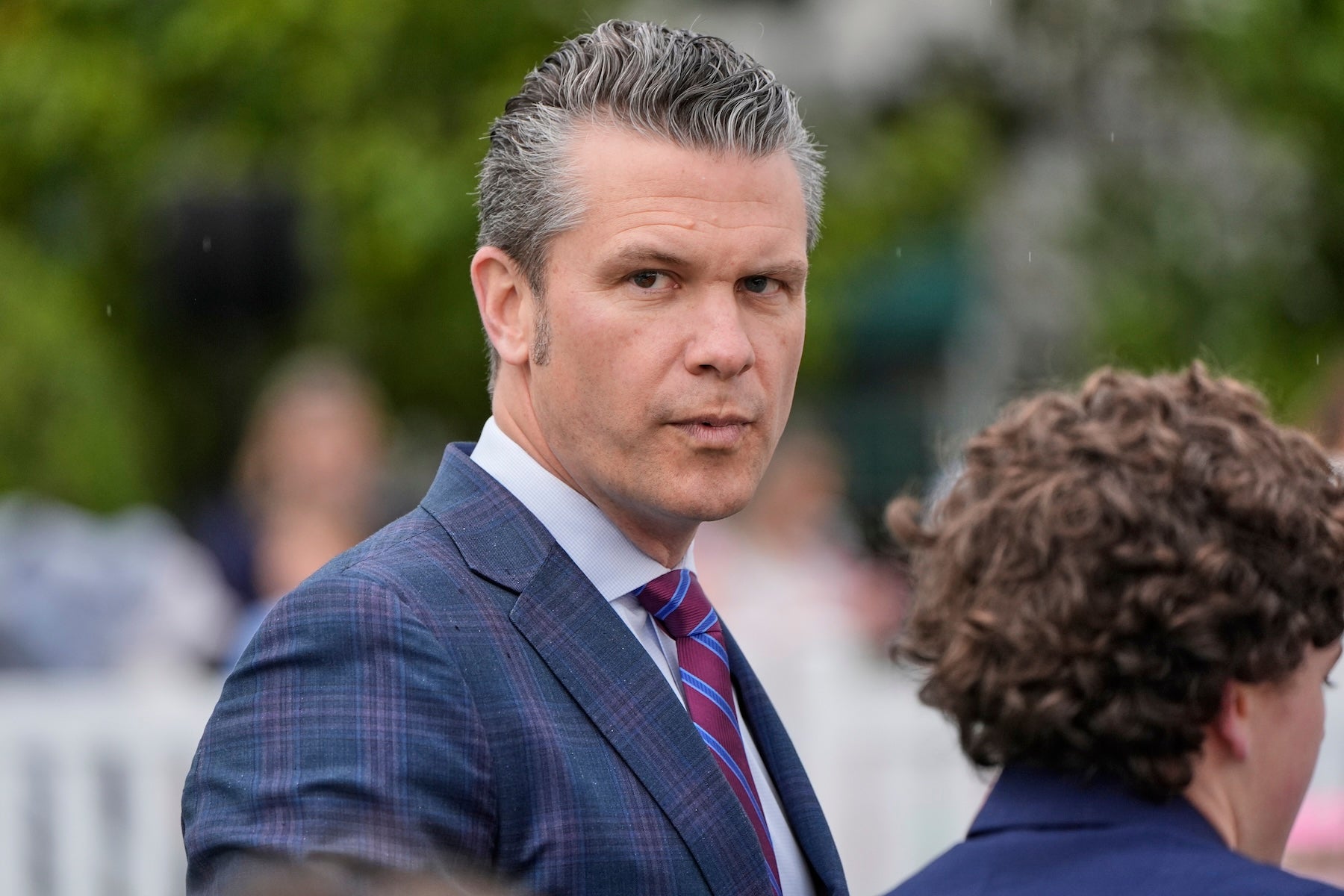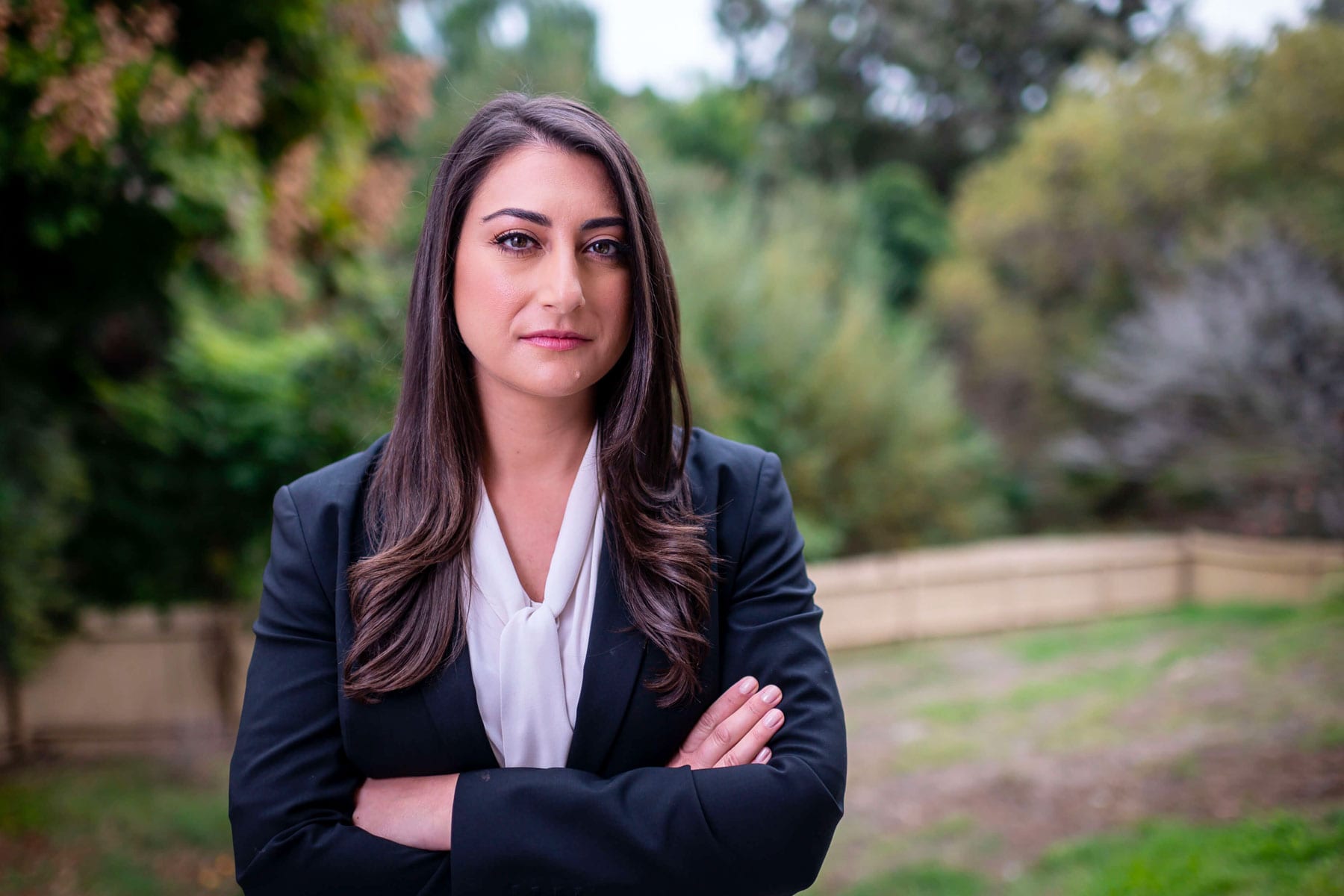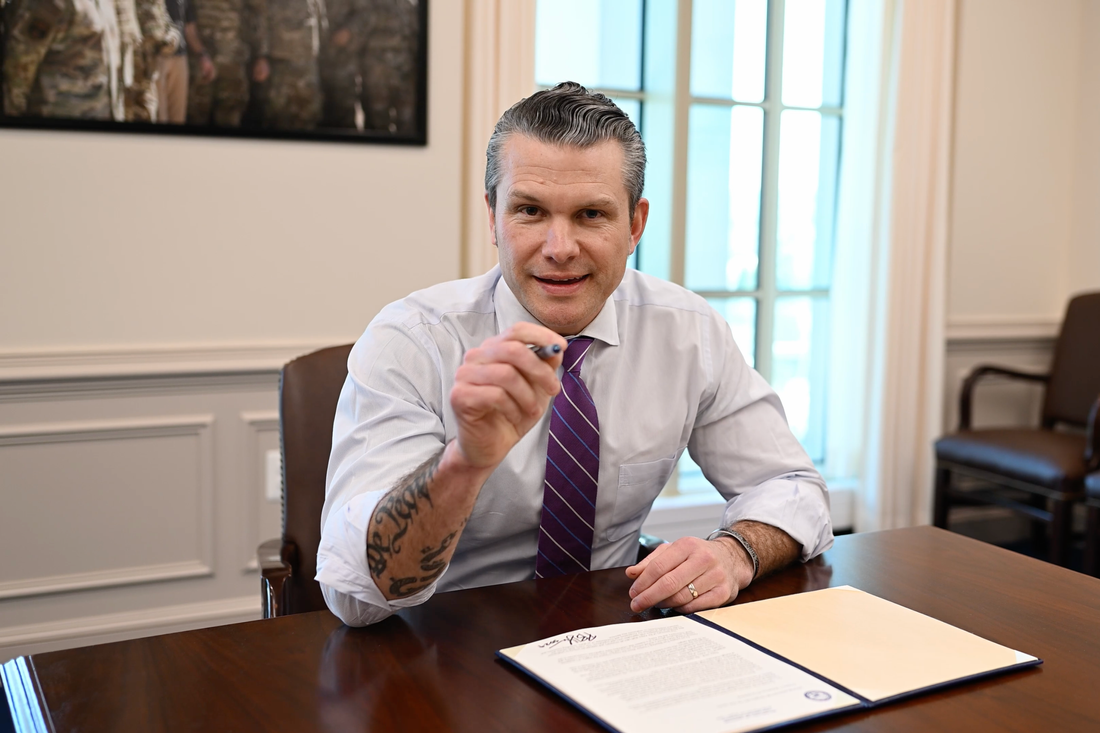
In a heated exchange during a House Armed Services Committee hearing on Thursday, Defense Secretary Pete Hegseth found himself in the midst of a fierce debate over the Trump administration’s stance on transgender service members. California Democratic Rep. Sara Jacobs used the hearing to expose what she deemed the hypocrisy of the administration’s directive to purge transgender troops—a decision she argued undermines military readiness and national security.
Jacobs, who represents San Diego, one of the largest military communities in the U.S., marked National Women Veterans Day by highlighting the impressive service records of three women in uniform: a major responsible for advanced combat training, an aviator with over 50 combat missions, and an ROTC instructor ranked as one of the top noncommissioned officers in her command.
All three women, Jacobs pointed out, had earned the highest marks from their commanding officers in recent months.
Initially, Hegseth acknowledged their exceptional records, praising their achievements. However, Jacobs then revealed that these service members were, in fact, transgender women.

Hegseth’s response was immediate, but not without controversy. “I would commend the major, the aviator, and the instructor for their service,” Hegseth said, but added that the Trump administration’s policy is driven by the belief that gender dysphoria poses a mental health risk that compromises military performance. “These are men who think they’re women,” he remarked dismissively.
Jacobs, taken aback by the dismissive response, fired back. “These are women,” she asserted firmly, offering to educate Hegseth on trans issues at a later time. The exchange quickly went viral, with many on social media criticizing Hegseth’s comments as insensitive and misinformed.
The incident comes at a time when the Pentagon is actively carrying out a sweeping purge of transgender service members, following a May 15 directive issued by Hegseth’s office. The directive mandates that, effective June 6, all service members diagnosed with gender dysphoria, either current or past, face involuntary separation unless they can obtain a rare and difficult-to-obtain waiver.

These waivers require troops to deny their gender identity and refrain from accessing any gender-affirming care. Legal experts and advocacy groups, including GLAD Law, argue that this policy is not only discriminatory but also detrimental to the military's overall readiness.
Jacobs sharply criticized this directive, arguing that it directly contradicts the core values of meritocracy that are supposed to define the military. She pointed out that if the Trump administration truly valued merit and service, these highly qualified transgender individuals would be retained rather than expelled.
“Wouldn’t their exceptional service show up in their fitness reports?” Jacobs asked, referring to the highly favorable evaluations the service members had received from their commanding officers.
The impact of this policy has been severe. Transgender service members have faced forced separations under misconduct codes, which not only tarnish their careers but also negatively affect their military benefits. Some troops, such as Maj. Erica Vandal, a West Point graduate and Bronze Star recipient, and Cmdr. Emily Shilling, a transgender Navy aviator, are plaintiffs in federal lawsuits against the government.

These lawsuits claim that the policy infringes upon their constitutional rights and undermines the very readiness that the Pentagon purports to protect.
While some military members have opted for early retirement to preserve their benefits, others have been pushed out against their will. The forced separations have sparked a growing backlash, especially among legal and advocacy groups. Jennifer Levi, the senior director of transgender and queer rights at GLAD Law, stated, “There’s nothing voluntary about forced separation.”
The legal challenges to the policy are mounting, with more plaintiffs coming forward to challenge the directive in court.
The directive and Hegseth’s remarks reflect a broader, contentious debate over the role of transgender individuals in the U.S. military, a debate that has been ongoing since the Obama administration’s decision to lift the ban on transgender service members. Under President Trump, this policy was reversed, leading to the current purge of transgender troops.

Advocates for transgender rights argue that the ban not only harms qualified service members but also harms the military by expelling individuals who are capable of serving effectively.
The Department of Defense has justified the policy by asserting that gender dysphoria presents a significant mental health risk, claiming that it undermines the performance of military personnel. However, many military leaders, including retired generals and former service members, have pushed back against this claim, stating that transgender individuals can and do serve with distinction.
They argue that gender identity should not be a barrier to military service, especially given that there is no evidence to support the claim that transgender individuals are less capable than their cisgender counterparts.
Moreover, the policy has created a troubling environment for service members who identify as transgender, many of whom now face the difficult choice of either leaving the military or denying their identity in order to stay. This creates a climate of fear and uncertainty within the armed forces, where service members are forced to choose between their careers and their identity.
Critics argue that this is a direct violation of the principles of fairness and equality that the military claims to uphold.

On the other hand, Hegseth and other conservative voices in the military argue that the integration of transgender individuals is a distraction and an unnecessary burden on military readiness. They claim that focusing on gender identity creates division and detracts from the military’s primary mission of defending the nation.
However, this stance has been widely criticized as out of touch with the realities of modern military service, where diversity and inclusion are increasingly seen as strengths rather than weaknesses.
The controversy over transgender service members has sparked a broader debate over LGBTQ+ rights and military policy. Many argue that the military should be a place where all individuals, regardless of gender identity, can serve with honor and dignity. These advocates argue that the real threat to military readiness is not the presence of transgender individuals but the continued discrimination and stigma that they face within the ranks.
In response to these challenges, several LGBTQ+ advocacy groups have called for a reversal of the policy, and many Democratic lawmakers have pledged to continue fighting for the rights of transgender service members.

Some have even introduced legislation to protect transgender individuals in the military and ensure that they are able to serve without fear of discrimination or forced separation.
As the legal battles over this policy continue, the fate of transgender service members in the military remains uncertain. Some have been forced out, while others continue to fight for their right to serve.
The Pentagon’s policy has created a situation where transgender troops are treated as second-class citizens, undermining the very principles of equality and fairness that the military is supposed to uphold.
In the meantime, the exchange between Hegseth and Jacobs has brought attention to the ongoing battle over transgender rights in the U.S. military, and it is clear that this issue is far from resolved. The military’s decision to expel transgender individuals is just one example of the broader cultural and political battles that are taking place across the country, as LGBTQ+ rights continue to be a contentious issue in American politics.
The outcome of the lawsuits against the government and the ongoing debate in Congress will likely determine whether transgender individuals can continue to serve in the military with dignity and respect or whether they will be forced to leave because of their gender identity.
As this issue continues to unfold, it is clear that the fight for equality and inclusion in the military is far from over. And as Jacobs made clear in her exchange with Hegseth, the military’s focus must be on the qualifications and abilities of service members, not their gender identity.



